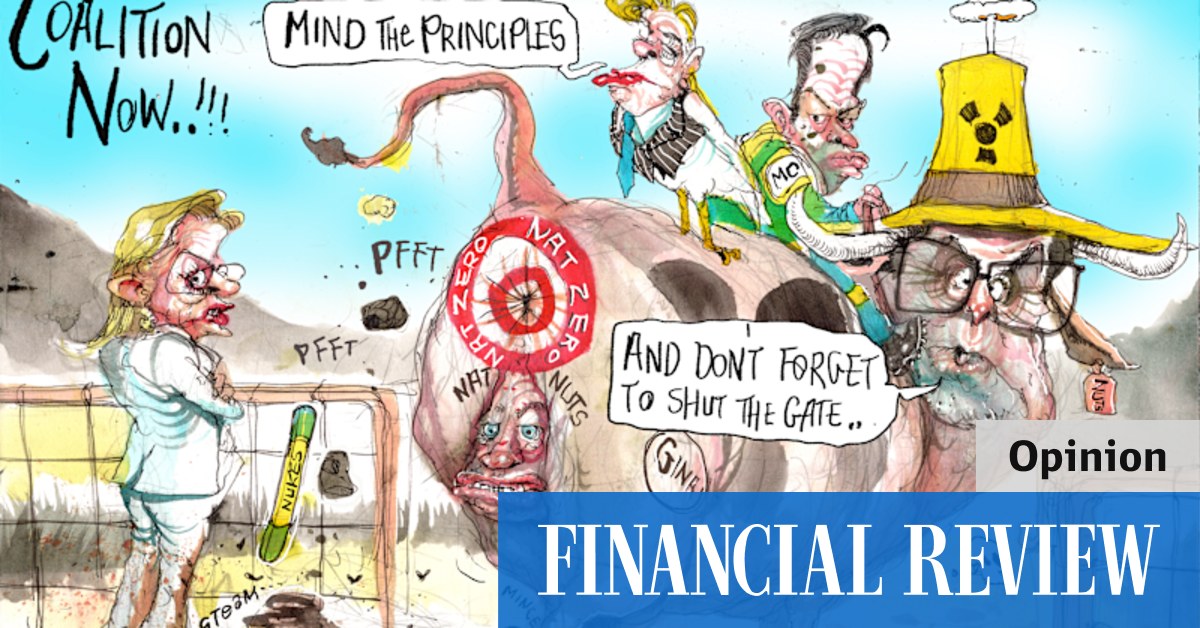Nationals-Liberal Reunion: A Necessary Coalition Fix?
The Australian political landscape is once again shifting, with whispers of a potential reunion between the Nationals and the Liberal Party gaining momentum. After a period of strained relations and separate campaigns, the question on everyone's mind is: is this reunion a necessary fix for the coalition, or a recipe for further instability?
The recent electoral defeats suffered by both parties have highlighted the urgent need for a cohesive strategy. Divisions within the coalition proved costly in the last election, and many believe a united front is crucial for regaining public trust and electoral success. But can old wounds be healed, and will a renewed alliance truly benefit the Australian people?
The Cracks in the Coalition: A Look Back
The relationship between the Nationals and the Liberals has always been a delicate balancing act. Representing different constituencies and priorities, the parties have often clashed on key policy issues, particularly regarding agriculture, regional development, and climate change. This internal friction has manifested in several ways:
- Policy disagreements: Public disagreements on issues like climate change policy and agricultural subsidies have undermined the coalition's image of unity and strength.
- Leadership challenges: Internal power struggles and leadership spills have weakened the coalition's ability to present a consistent and credible message to the electorate.
- Electoral underperformance: The fractured relationship has demonstrably impacted the coalition's ability to secure votes, resulting in significant electoral losses.
The departure of key figures from both parties, and the rise of independent candidates in key regional seats, have also exacerbated these issues, highlighting a growing disconnect between the coalition and their traditional voter base.
A Reunion: Potential Benefits and Drawbacks
A reunion between the Nationals and the Liberals could offer several potential benefits:
- Increased electoral viability: A united front would present a stronger challenge to the Labor government and other political parties.
- Stronger policy platform: A unified coalition could develop a more cohesive and impactful policy platform, addressing key national issues more effectively.
- Improved public perception: Reuniting could potentially help rebuild public trust and confidence in the coalition.
However, the potential drawbacks are significant:
- Internal conflict: Past divisions may resurface, leading to renewed instability and undermining the coalition's effectiveness.
- Policy compromises: Reaching consensus on key policy issues could require significant compromises, potentially alienating sections of the electorate.
- Lack of clear leadership: A united coalition needs strong, unifying leadership to effectively manage internal tensions and external pressures.
The Path Forward: Navigating the Challenges
The success of any coalition reunion hinges on addressing the underlying issues that caused the previous rift. This requires open communication, compromise, and a clear commitment to working together for the benefit of the nation. Crucially, both parties need to:
- Establish clear lines of communication: Regular dialogue and collaborative policy development are essential for resolving disagreements and preventing future conflicts.
- Identify common ground: Focusing on shared goals and priorities can help build consensus and strengthen the coalition's overall message.
- Develop a cohesive policy platform: A comprehensive policy agenda that addresses the needs of all Australians is crucial for regaining public trust and support.
Conclusion: A Necessary Gamble?
The potential reunion between the Nationals and the Liberals is a high-stakes gamble. While it offers the possibility of a stronger, more effective coalition, it also carries significant risks. Only time will tell whether this reunion proves to be a necessary fix or another chapter in the coalition's ongoing struggles. The path forward requires careful consideration, compromise, and a renewed commitment to representing the interests of all Australians. The coming months will be crucial in determining the success – or failure – of this potentially pivotal political manoeuvre. What are your thoughts on this potential political realignment? Share your opinions in the comments below!

